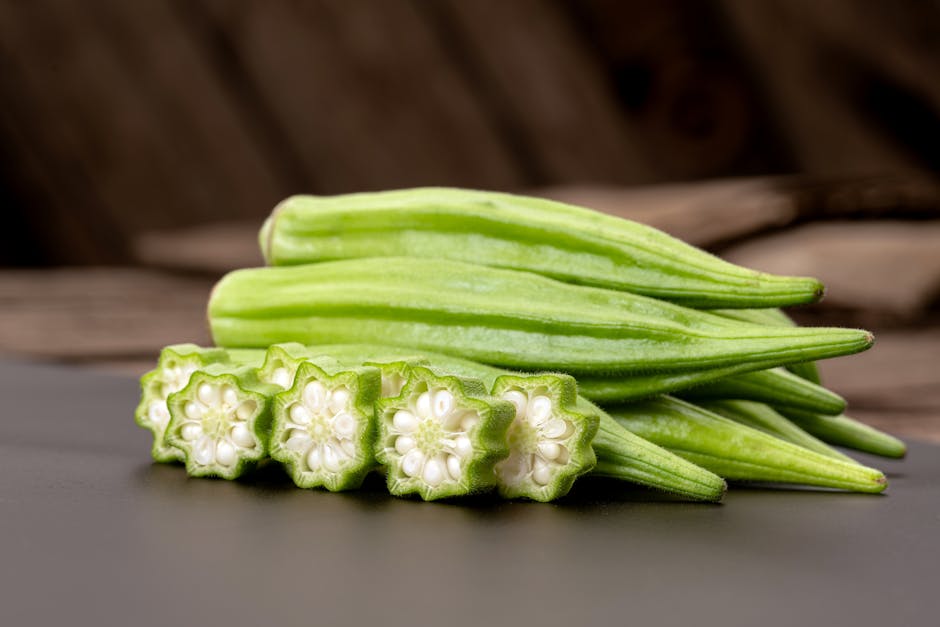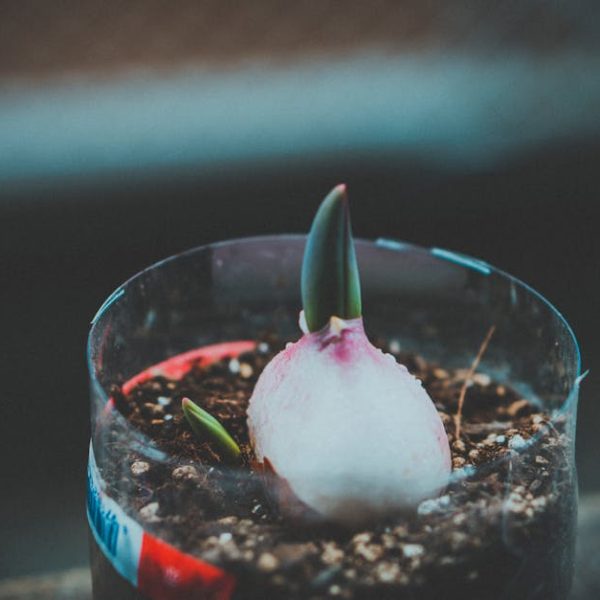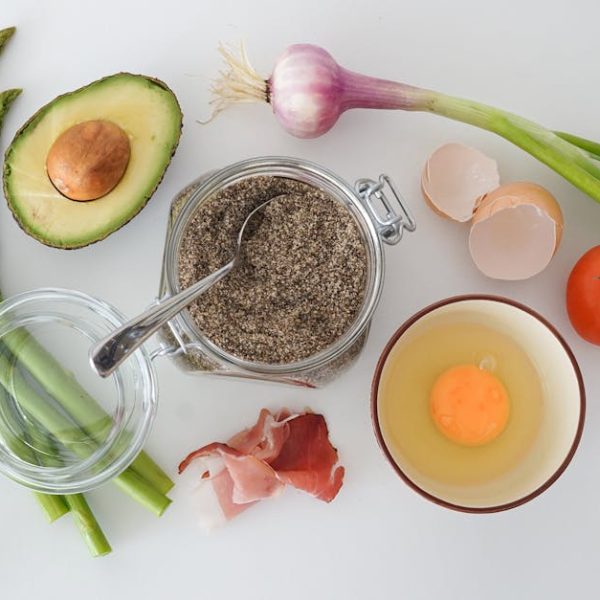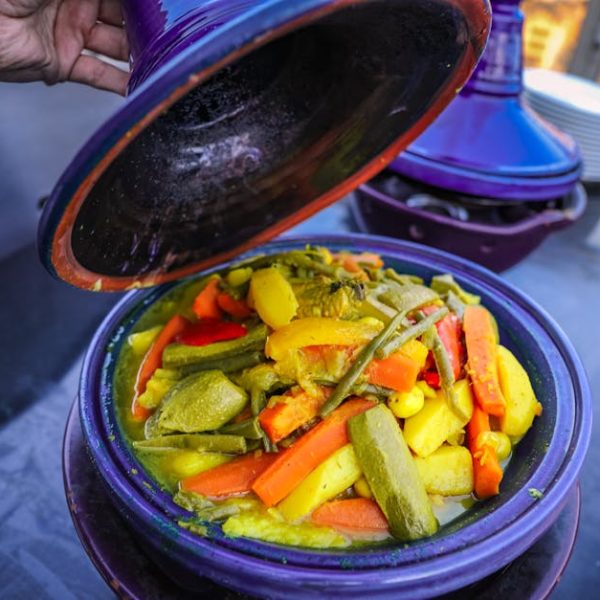Okra, with its unique texture and dynamic flavor, can elevate any dish. This delightfully ‘green’ ingredient, part of the mallow family, is not only a stalwart in the culinary world but also boasts numerous health benefits due to its fiber, vitamin C, and folate content. However, it can be quite tricky to store in order to preserve its freshness and critical nutrients. This article aims to equip you with smart tips and methods of storing okra that will not only extend its shelf life but also maintain that vegetable crunch we all love.
Understanding the Characteristics of Fresh Okra
From its vibrant green hue to its distinct taste, fresh okra has certain attributes that stand out. Fresh okra typically has a slightly ribbed, green exterior and should feel firm to the touch. An overly soft texture or browning spots may be indicative of spoilage. This vegetable has a short shelf-life, usually lasting around 2 – 4 days when stored in a cool and dry place. The life of okra can be significantly reduced by factors such as temperature, humidity, and light exposure. So, being able to discern between fresh and spoiling okra can play a crucial role in optimal storage and usage.
The Right Way to Store Okra in the Refrigerator
Storing okra in the refrigerator is an effective method in preserving its freshness. I recommend packing your okra in paper or plastic bags before placing it in the fridge. The bag prevents excess moisture and keeps the okra dry, further ensuring the life of your produce. In terms of fridge logistics, only the top and middle shelves should host your okra. Lower shelves are warmer due to their proximity to the refrigerator motor and can increase the okra’s rate of decay. Lastly, it’s best to keep your okra separate from other vegetables or food to prevent cross-contamination.
Using Freezing Method to Extend Okra’s Shelf Life
Freezing okra is a tremendous, often under-used method to extend its shelf life significantly. To freeze okra, blanch the pods first in boiling water for a brief period of time. This process will help preserve the texture, color, and nutrients. After blanching, pack your okra in freezer bags, removing as much air as possible before sealing shut – this practice reduces freezer burn. Remember, when thawing your okra, do it slowly in the refrigerator to maintain its quality. Weighing up the methods, the freezer can significantly prolong the life of your okra, but the taste and texture may not be quite as delightful as when fresh.
Integrating Okra in Canning and Pickling Methods
Canning and pickling are traditional methods of food preservation and they work splendidly for okra as well. Pickling okra transforms the texture and flavor, but it can add a wonderful tang to your meals while extending its life. Just combine your okra with vinegar, water, salt, and any herbs or spices of your choosing and leave it to soak for a few days in the fridge to achieve that perfect flavor.
On the other hand, canning is a slightly different process, but it’s great if you want to keep that home-grown okra tasting fresh all year round. After blanching your okra, pack them into jars with your preference of herbs and spices. Submerge the jars in a large pot of water and boil for about 10 minutes to create an airtight seal.
When it comes to longevity and taste, fresh okra still takes the top spot. However, for an exciting twist and longer-lasting storage, pickled and canned okra are brilliant alternatives.
How to Incorporate Okra in Various Recipes for Immediate Use
Okra isn’t just for gumbos and stews. It can add a healthy crunch and stand-out flavor in a variety of dishes. For example, you can grill, roast, or steam your okra to draw out its rich flavors. Remember, cooking okra immediately after purchase can extend its edible life.
Beware of the slimy texture okra can take on when it’s overcooked. To prevent this, roast it at a high temperature or cook it with acidic ingredients, like tomatoes or vinegar.
From deep-fried okra to okra sautéed with onions, there are a multitude of ways to make okra a delectable part of your meals. Even better, making okra a regular part of your diet has been associated with numerous health benefits.
Final Thoughts
With the right knowledge and techniques, you can keep your okra fresh, flavorful, and nutritionally-packed for a longer time. Remember, understanding the characteristics of fresh okra and storing it correctly in the refrigerator can dramatically extend its life. And, if you’re looking to use okra after its prime, applying freezing or pickling methods are excellent strategies for preservation. So, get your okra, apply these smart tips and enjoy this wonderful vegetable in all its goodness!
Key Takeaway:
- Understand the characteristics of fresh okra – its texture, smell, color, and crucial signs of spoilage. This knowledge helps in better storage and usage.
- Proper refrigeration can significantly increase the freshness and shelf life of okra. Keep the vegetable in a well-sealed bag, stored at the right temperature, and prevent cross-contamination within the refrigerator.
- Freezing okra can extend its life massively, but it requires correct freezing methods to maintain its taste, texture, and quality over time.
- Canning and pickling are traditional long-term okra preservation methods, with each offering unique taste profiles.
- Okra can be used immediately in a range of recipes to extend its edible life. Cooking the vegetable immediately after buying is a great way to reduce wastage.
Embrace okra and its wonderful versatility! Not only is it a star ingredient in many dishes, but it’s imbued with exceptional health benefits too. With the knowledge garnered from this article, you now possess the power to select, store, and cook okra like a seasoned pro. Enjoy!
FAQs
Q: Can okra be stored in ambient temperature instead of refrigeration?
A: Okra has a short shelf-life and requires a cool and dry place for optimal storage. If left at room temperature, it may spoil considerably faster. Refrigeration is typically recommended for maximum freshness.
Q: Is it necessary to wash okra before refrigerating or freezing it?
A: Washing before storage is not recommended as excess moisture may contribute to faster spoilage. However, always wash your vegetables thoroughly before cooking or consuming.
Q: How to determine if frozen okra is still good to use?
A: Any signs of freezer burn or a change in color or odor may indicate that the okra is no longer fresh. Always ensure to package it properly before freezing to maintain its quality.
Q: Can I re-freeze okra that has already been thawed?
A: It’s generally not recommended to re-freeze thawed foods, including okra, due to potential nutrient loss and texture changes.
Q: What are some health benefits of regular okra consumption?
A: Okra is high in fiber, vitamin C, and folate, making it beneficial for digestion, skin health, and red blood cell production, among other things.
We’d love if you found this article helpful and insightful, feel free to share it with friends and family who might benefit from these okra tips too. We have a plethora of other articles on various topics available on our website for you to explore.






